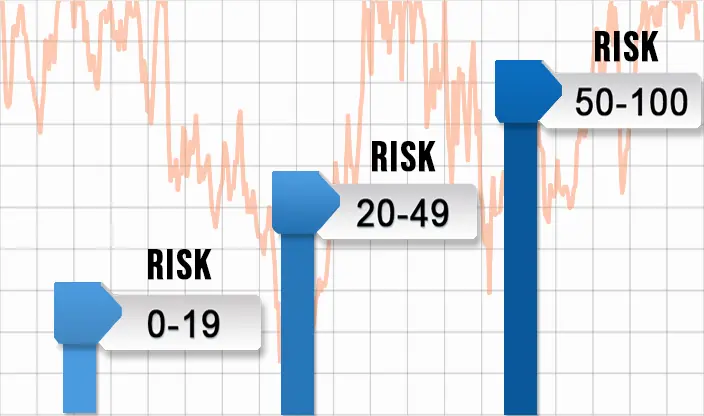What is Illiquidity Premium?
Concierge Wealth Services
What Is Illiquidity Premium?
The illiquidity premium is the potential reward investors seek for accepting reduced access to their capital. In essence, it’s compensation for time, uncertainty, and the inability to sell an investment quickly. Understanding how that premium arises—and when it’s justified—is a core skill for institutions and qualified investors who evaluate private market opportunities.
1) Defining Illiquidity Premium in Practical Terms
In traditional markets, liquidity allows investors to buy or sell positions nearly instantly. In contrast, private equity, real estate, and private credit lock up capital for years. Investors require higher expected returns—an “illiquidity premium”—to offset the opportunity cost of not being able to redeploy cash quickly.
That premium is not guaranteed. It depends on structure, duration, and execution. The best frameworks emphasize measurable risk-adjusted returns and consistent reporting, principles explored in Quantitative Risk Management.
2) The Origins of Illiquidity
Illiquidity exists because some assets take longer to value or transact. Private loans, infrastructure projects, and real estate holdings can’t be sold on a centralized exchange. This slower turnover creates potential return advantages—but also uncertainty in timing, valuation, and control.
3) The Trade-Off Between Access and Return
In efficient markets, investors who give up liquidity expect additional yield or long-term appreciation. But not every illiquid investment delivers that premium. Proper analysis distinguishes between being paid for risk and simply taking risk without compensation.
4) How Institutions Evaluate Illiquidity Premium
Institutional investors quantify illiquidity risk within a broader asset-liability framework. They forecast capital calls, model distributions, and evaluate how each commitment affects portfolio liquidity. The key question is: “Can this investment’s characteristics improve the overall risk-return profile without creating stress on short-term cash needs?”
This approach echoes the structure outlined in Institutional-Grade Portfolio Construction, where diversification and liquidity mapping are built before exposure is added.
5) Misinterpreting Illiquidity as Safety
Because private investments don’t mark to market daily, they may appear stable. But apparent stability is not reduced risk—it’s delayed visibility. Institutions treat illiquid holdings as active exposures that must be stress-tested under varying market conditions.
6) Chasing the Premium Without Process
Investors often hear that private markets “always outperform.” That’s a myth. Outcomes depend on structure, timing, and governance. Without disciplined underwriting and pacing, illiquidity can magnify—not minimize—risk. Related insights appear in The Rise of Private Market Opportunities Once Reserved for Institutions.
7) Balancing Illiquidity and Behavior
For long-term investors, illiquidity can be a feature, not a flaw—if properly sized. It discourages reactionary selling and encourages time alignment between objectives and assets. But that benefit only applies when liquidity is planned, reserves are adequate, and behaviors are managed under clear policy guidelines. The wealthy manage this the same way institutions do: by focusing on process, governance, and decision cadence, not prediction.
To explore how fiduciary introductions work for qualified investors, visit An Invitation to Explore More.
Related Topics to Explore
- The Rise of Private Market Opportunities Once Reserved for Institutions
- Institutional-Grade Portfolio Construction
- Quantitative Risk Management
- Concierge Wealth Services
Request a Confidential Conversation
📞 Call us at 800-533-5969
Important: We do not provide securities or investment advice. If appropriate, we may introduce you to an independent SEC-registered investment adviser for evaluation under their regulatory framework.
What Is Illiquidity Premium? — Frequently Asked Questions
What exactly is the illiquidity premium?
It’s the potential additional return investors seek for accepting limited liquidity, typically in private market investments.
Is illiquidity premium guaranteed?
No. It depends on structure, manager skill, and execution. Not all illiquid investments provide excess return after fees and risk.
Why would anyone choose illiquidity?
Because it can align long-term capital with opportunities not available in daily-traded markets—if managed under fiduciary oversight.
Does Diversified offer illiquid products?
No. Diversified Insurance Brokers does not offer securities or investment advice. Clients may request introductions through Concierge Wealth Services.
Where can I learn more?
See The Rise of Private Market Opportunities Once Reserved for Institutions for broader context.
Important Notice: Wealth management and investment advisory services are provided exclusively through our independent SEC-registered investment adviser partner. Our insurance firm does not offer securities or investment advice.
About the Author:
Jason Stolz, CLTC, CRPC, is a senior insurance and retirement professional with more than two decades of real-world experience helping individuals, families, and business owners protect their income, assets, and long-term financial stability. As a long-time partner of the nationally licensed independent agency Diversified Insurance Brokers, Jason provides trusted guidance across multiple specialties—including fixed and indexed annuities, long-term care planning, personal and business disability insurance, life insurance solutions, and short-term health coverage. Diversified Insurance Brokers maintains active contracts with over 100 highly rated insurance carriers, ensuring clients have access to a broad and competitive marketplace.
His practical, education-first approach has earned recognition in publications such as VoyageATL, highlighting his commitment to financial clarity and client-focused planning. Drawing on deep product knowledge and years of hands-on field experience, Jason helps clients evaluate carriers, compare strategies, and build retirement and protection plans that are both secure and cost-efficient.

